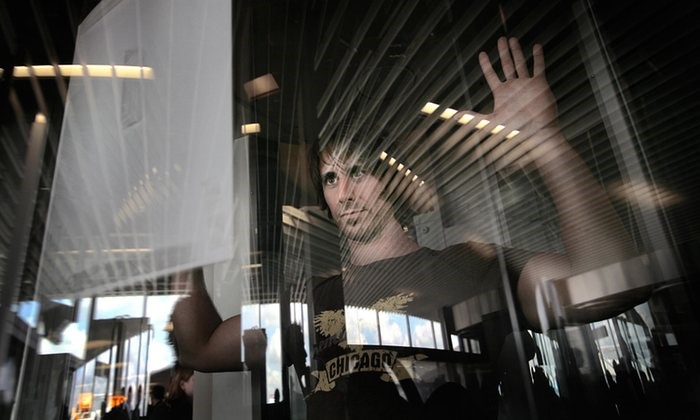
Australia plans to eliminate stop-and-frisk airport security by 2019, replacing it with biometric scanning technology that could allow up to 90% of travelers to pass through without human intervention.
With a budget of $100 million, the Department of Immigrant and Border Protection is seeking a service provider to supply an automated processing solution to support its “Seamless Traveler” plan and implement biometric security systems. Tender documents on the Australian Government’s procurement information system reveal that 90% of passengers will go through automated processing points equipped with biometric capturing, “including, but not limited to, facial, iris, and fingerprints.”
The agency hopes to deploy a pilot program as early as this summer, with a complete rollout across larger airports scheduled by 2019. Seamless Traveler is a response to what the agency forecasts to be an exponential increase in the number of air passengers to Australia in the upcoming years.
Despite a focus on what some may deem to be invasive biometrics, the program aims to streamline airport processing by making it easier for travelers to go through security checkpoints, “processing travelers using ‘contactless’ technology, removing the need for some travelers to present their passport.” John Coyne, head of border security, sees the program as a “world’s first.”
Critics, on the contrary, were quick to point out how biometric recognition en masse raises serious questions about privacy and the ethical concerns surrounding data security. Speaking with the Guardian, Katina Michael, a University of Wollongong professor and expert in biometrics, said that technology has not proven to improve either security or airport efficiency.
If my recent experience at the McCarran International Airport in Las Vegas is anything to go by, no amount of new toys can guarantee public safety when operated by apathetic, disgruntled government employees. As I stood in the queue awaiting my turn to go through the infamous full-body scanner, the machine malfunctioned and needed “recalibrating.” Hoping to maintain the flow of traffic, TSA agents ordered the first three people in queue to sidestep and walk through an adjacent gate for an old-fashioned pat-down. And so we did, but no pat-down ever came; the TSA agents standing nearby didn’t even notice that three passengers just walked through security without ever being checked.
Regardless of the occasional human error, Seamless Traveler could potentially eliminate man-made security holes, but not without repercussion. Michael believes that its ordinance plan threatens individual privacy and raised ethical dilemmas not properly explained to the public.
“We are steam-training right through all of these technological transitions, and we’re not thinking about the ramifications,” she said. “Even if the system works, is that ethical to impose this system on the entire populace, without even asking them? I see the perceived benefit, but what I do know is that there will be real costs, human costs, not only through the loss of staff through automation but also through discrimination of people who may appear different.”
Data theft is equally concerning, particularly because of the complacency that’s sprung up around the frequency of data breaches in the private sector and the government’s inability to secure sensitive information in the public sector. Recall that, in 2016, Yahoo experienced the largest data breach of all time, when 1 billion of its accounts were hacked. Earlier that year, it was also proven that the IRS used the same tool in 2016 to protect personal records that were hacked in 2015.
The Australian government is no exception: its 2016 Census website suffered a 43-hour outage due to denial of service attacks and “system failure” after it failed to maintain the website’s resilience once the site went live. “Is the next phase of rollout going to be, ‘Oh, my e-health records were taken,' ‘Oh, my biometrics at border control were taken’?” said Michael.
Others, like information security expert Patrick Gray, dismiss concerns as an overreaction, suggesting that airports are already the most surveyed places on the planet. “The time to be worrying about this is when someone seriously proposes running live facial recognition against CCTV in public places like city streets and train stations with insufficient oversight in use. Then we’ve got a problem,” he said to the Guardian.
If Seamless Traveler’s public reception sparks a new precedent in security, then expect the rest of the world to follow suit. The questions are how to strike a balance between ethics and security and who is accountable when mistakes inevitably arise.
Source: Guardian
Advertisement
Learn more about Electronic Products Magazine





